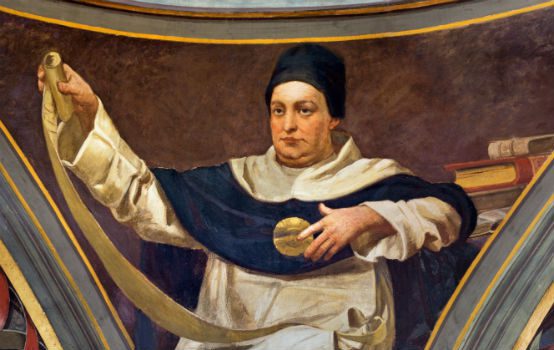The myth of Flat Earth?
You've probably heard that the Medieval people thought the Earth was flat. Is this true? I'll show you some images from various manuscripts, as well as quotes from two well-known Medieval scholars.
Regarding this issue, here’s what Bede Venerabilis (673-735) says:
“Why the same days are unequal in length?
The reason why the same (calendar) days are of unequal length is the roundness of Earth...”
Bede, The Reckoning of Time, trans. Faith Wallis (Liverpool University Press, 1999), pp. 91.
 |
| God the Geometer 13th century. |
Full quote:
 |
The Creation of the World and the Expulsion from Paradise (1445) by Giovanni di Paolo |
St. Thomas Aquinas O.P. (1225-1274), the most famous Medieval and Catholic thinker, knew that the Earth was round. Here's what he said:
“[T]he astronomer and the physicist both may prove the same conclusion—that the earth, for instance, is round: the astronomer by means of mathematics (i.e., abstracting from matter), but the physicist by means of matter itself.”
 |
| Thomas Aquinas O.P. |
 |
| Medieval depiction of a spherical earth with different seasons at the same time, from the book "Liber Divinorum Operum" (1163-1173) by Hildegard von Bingen |
According to Jeffrey Burton Russell, a Medieval history expert, the idea that Medieval people believed in a flat Earth was introduced between the end of the nineteenth and the beginning of the twentieth centuries.
You can read his article here.
 |
| Islamic depiction of Earth |
Further reading:
Falk, Seb. The Light Ages: The Surprising Story of Medieval Science .W. W. Norton & Company, 2020.
Hannam, James. God's Philosophers: How the Medieval World Laid the Foundations of Modern Science. Icon Books Ltd, 2009.
Cormack, Lesley B. "Flat Earth or round Sphere: Misconceptions of the Shape of the Earth and the Fifteenth-century Transformation of the World." Ecumene 1, no. 4 (1994): 363-85. Accessed July 9, 2021. http://www.jstor.org/stable/44251730.




Always proud of your writings.
ReplyDeleteDoing great S!
Thank you, bro!
Delete